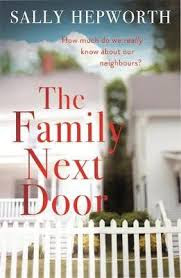It worries me that so many libraries are being closed down in my county. East Sussex now has only 17 libraries, which for an area that has 550,000 (2016) is fairly few. Also, the mobile library service has been cut to the villages which have no library.
I understand that we live in a digital age and that the electronic library that East Sussex County Council have in place is very good. Without moving from the armchair I can download library books to my tablet or phone and funds are being invested in this aspect of the library service.
However, not everyone has access to a tablet or chooses to use this method of borrowing books and I really hope the day never comes when we are all expected to read and borrow our books this way. I do read e-books but I still prefer a physical copy. I love the feel and smell of a book in my hands and e-books simply do not provide me with the same experience.
I also think that there is a social aspect to visiting the library. Thankfully, the days of having to be silent in a library are long gone and children are free to play and learn amongst the books. And for some, the elderly or, perhaps, the lonely, a visit to the library might be the only social interaction they have so I sincerely hope that public libraries are globally given the attention and funding that they so richly deserve.
When I began this blog post I had intended just to tell you about the books that I borrowed but the above paragraphs just poured themselves out. I guess it is a subject very close to my heart.
I borrowed four books yesterday - all quite different and I am really looking forward to getting stuck into them. Have you read any of these? I would love to hear your thoughts. Which do you think I should begin with?
The Dress Shop of Dreams by Menna van Praag
Tucked away on a winding Cambridge street, Etta's tiny dress store appears quite ordinary to passers by, but the colourfully vibrant racks of beaded silks and jewel toned velvets hold bewitching secrets; with a few stitches from Etta's needle, these gorgeous gowns have the power to free a woman's deepest desires. Etta's granddaughter, Cora Sparks, has spent her life hidden away in the safety of the little shop and her university lab, ever since her parens' mysterious deaths many years ago.
Cora's studious, unromantic eye has overlooked Walt, the shy bookseller who has been in love with her for years. Determined not to let Cora miss her chance at happiness, Etta sets in motion a series of astonishing events that will transform Cora's life in extraordinary and unexpected ways.
Every Dead Thing by John Connolly
The Travelling Man is on the move.
Few will survive the journey.
Former New York detective Charlie Parker is a man shattered by the brutal killings of his wife and child.
The Travelling Man is an artist of death, making human bodies his canvas and taking faces as his prize.
Now another girl is missing.....
Silent Scream by Angel Marsons
Five figures gather round a shallow grave. They had all taken turns to dig. An adult sized hole would have taken longer...
Years later, a headmistress is found brutally strangled, the first in a spate of gruesome murders which shock the Black Country.
But when human remains are discovered at a former children's home, disturbing secrets are also unearthed. D.I. Kim Stone fast realises she's on the hunt for a twisted individual whose killing spree spans decades.
As the body count rises, Kim needs to stop the murderer before they strike again. But to catch the killer, can Kim confront the demons of her own past before it's too late?
The Nest by Cynthis D'Aprix Sweeney
When black sheep Leo has a costly car accident, the Plumb siblings' much-anticipated inheritance is suddenly wiped out. His brother and sisters come together and form a plan to get back what is owed them - each grappling with their own financial and emotional turmoil from the fallout. As 'the nest' fades further from view, they must decide whether they will build their lives anew, or fight to regain the futures they had planned.
Ferociously astute, warm and funny, The Nest is a brilliant debut chronicling the hilarity and savagery of family life.


















